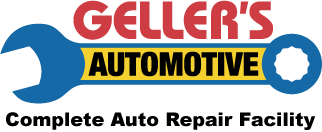
Unless you are driving a completely electric vehicle, you know that in order for your internal combustion engine to work it requires a fuel source. Anyone who has ever run out of gas on the road is very aware of the necessity for fuel. However, fuel is only one aspect in the overall operation of your vehicle’s fuel system. In this blog, we cover key information about your vehicle’s fuel system, including how it works and what you can do to keep it operating effectively. We also review some common issues and preventative measures you can take to ensure a better functioning fuel system.
The Functions of a Fuel System
| Component(s) | Function(s) |
|---|---|
| Fuel Tank | - The fuel system begins with the fuel tank, which holds the gasoline for your vehicle. - Gasoline is a petroleum derived compound that is flammable and is what ignites the internal combustion engine. |
| Fuel Pump | - The fuel pump is the conduit between your fuel tank and the fuel lines. - The fuel pump pushes the gasoline into the fuel lines. - In some vehicles, there may be more than one fuel pump as a means of creating more even flow of fuel. |
| Fuel Line | - The fuel lines are hard metal tubes that direct the fuel towards the engine. - Because the fuel lines are carrying gasoline, they are protected by other components of your vehicle to minimize their exposure to heat and road elements. |
| Fuel Filter | - Before the gasoline reaches the engine, it must pass through the fuel filter. - The fuel filter is designed to remove any impurities that the gasoline may have acquired along the way such as dirt, grime, or debris. |
| Fuel Injectors | - Once the gasoline has been filtered, it moves through to the fuel injectors. - The fuel injectors release the appropriate amount of fuel (depending on the throttle pressure) by spraying the fuel across the combustion chambers. |
The fuel system is a continuous process as your vehicle is running to pump gasoline from the tank through the lines and into the combustion chambers.
Fuel System Issues
Because of its continuous operation and susceptibility to wear and tear, the fuel system may experience a variety of issues, the more common include:
| ISSUES | PREVENTATIVE MEASURES |
|
|
|
|
|
|
|
|
If you have concerns or issues with your vehicle’s fuel system, give the service professionals at Geller’s Automotive a call. We can discuss your options for repair and schedule an appointment for a full inspection of your vehicle’s fuel system.



